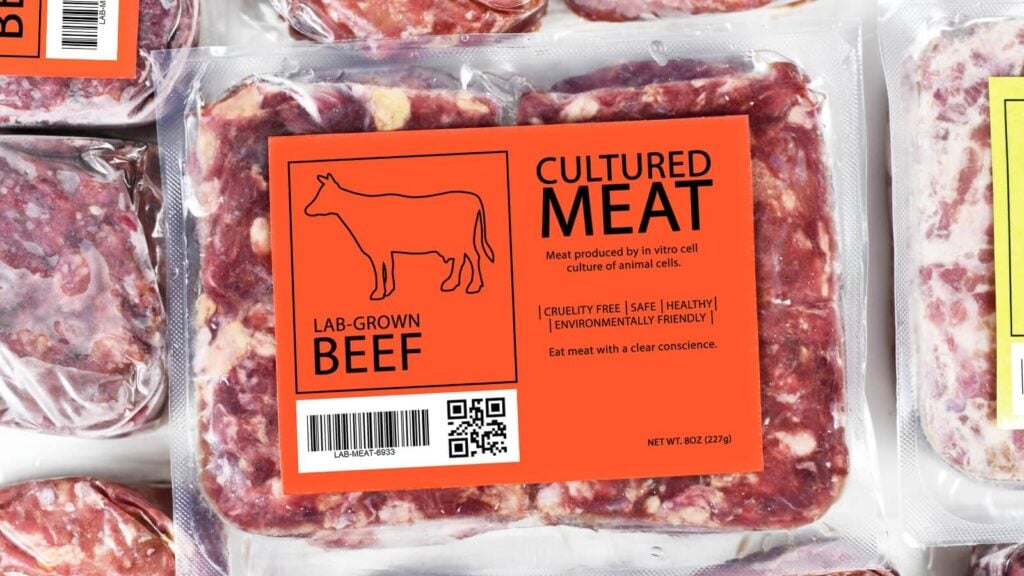Cultured meat was once nothing more than science fiction. As such, consumers were generally against it. But attitudes are changing. A recent poll by Piplsay found that nearly 20 percent of US and UK consumers are ‘eager’ to try cultured meat, which is also known as cell-based, lab-grown, or clean meat.
The research
Piplsay asked 31,340 Americans and 9,166 Britons about their stance on cell-based meat. Nineteen percent of Americans and 18 percent of Brits said they are eager to give it a go.
Other research predicts these figures are even higher. A 2018 study found that 66 percent of Americans would try cultured meat.
What is cultured meat?
Cultured meat is produced by in vitro cultivation of animal cells. Scientists can collect cell samples from animals without harming them. For instance, Californian food start-up Eat Just waited for a chicken, named Ian, to naturally drop a feather to collect his cells.
The cells are placed into a growth medium, which fools the cells into thinking they are still a part of the animal’s body. This results in the cells multiplying to eventually become a larger piece of meat.
The final product looks and tastes just like traditional meat, because on a cellular level, it is identical. However, scientists are also able to control specific features of the meat. For instance, how much fat it contains.
Recent advancements in cultured meat

A Dutch scientist named Mark Post presented the world’s first cell-based beef burger at a press conference in 2013. The burger cost around $280,000.
A spokesperson from Mosa Meat – a food tech company co-founded by Post – explained why.
“The burger was this expensive in 2013 because back then it was novel science and we were producing at a very small scale. Once production is scaled up, we project the cost of producing a hamburger will be around 9 euros,” she told Reuters.
She added that cultured meat could eventually be cheaper than its traditional counterpart.
Mosa Meats isn’t the only company driving the cultured meat movement. Cellular aquaculture company Wildtype says it is ‘reinventing seafood’ with its slaughter-free salmon. Shiok Meats, based in Singapore, produces cell-based shrimp, crab, and lobster.
Israeli food tech Aleph Farms makes beef steaks, Hong Kong’s Avant Meats grows sustainable fish, and Memphis Meats develops cell-based chicken, meatballs, and duck.
The technology doesn’t stop there. Israeli start-up Remilk produces dairy products without using cows. And Because Animals, based in Delaware, was the first brand to grow cell-based meat pet food.
Tyson Foods – the world’s second largest processor of chicken, beef, and pork – has invested in cell-based meat start-up Future Meat Technologies as well as Memphis Meats. Tyson Foods’ then-Executive Vice President Justin Whitmore explained why at a 2018 panel event.
“We don’t want to be disrupted,” he said. “We want to be part of the disruption.”






